Every year during the Easter season, I can’t help but think about my time serving as the protestant chaplain to the Canadian contingent with the United Nations Protection Force during the Bosnian war. My first worship service was to the backdrop of mortar and small arms fire. The memories come to me more intensely this year as I watch wars rage on in several parts of the world, implicating the peoples of all three Abrahamic faith traditions during high seasons of their respective religious calendars. From the end of March through early May, the Eastern Orthodox and Ukrainian Catholics will celebrate Easter, as will the Orthodox in Russia. In Israel, the end of April brings the Season of Passover, and in Gaza, Ramadan has already begun. Even during times of war, religious ritual remains a significant part of life, calling the faithful to celebrate the central themes of their traditions in sometimes unconventional ways.
In the winter of 1993, five months into my tour, I was on a resupply convoy from Sarajevo to our troops in the Muslim ‘safe haven’ of Srebrenica, where thousands of Bosniak Muslims were surrounded by the Serbian Army. A group of our soldiers had been inside the enclave for a month, flying the UN flag in an attempt to stave off what was deemed to be an imminent attack. Their one armored personnel carrier doubled as an ambulance when, at the sign of any activity, the Serbs directed artillery and mortar fire into the centre of the town. Recovering the wounded had become unsettling but essential duty.
You may unsubscribe from any of our newsletters at any time.
The British, who served alongside us, had commandeered a former Bosnian Air Force base to operate out of, just an hour outside of Srebrenica. One-hundred-and-twenty personnel and vehicles was positioned there while they waited for orders to advance into the town and relieve our soldiers. It was Easter Sunday when I arrived with the convoy to visit the troops inside a former jet hangar. In operations, there are no days off; holidays are worked into the schedule where and when possible. I came prepared to hold an Easter Sunday Service with communion, albeit, on Easter Monday.
The concrete hangar was built into a hillside so as not to be observed from the air. It had not functioned in some years and was in disrepair. Two large doors on rails and pulleys served as the entrance, sufficient in height and width to accommodate the wingspan of a Russian fighter jet. There was no electricity and, therefore, no light, so we generated our own. The constant drip of water seeped through the soil-covered roof, gathering in a shallow pool in the far corner. We slept on cots inside the hangar, but the dampness from the wet concrete radiated up, making it impossible to get a good night’s sleep.
On Easter Monday, we turned the rows of army cots into pews. I found an old 45-gallon drum deep inside the hangar and used a few wooden planks to create the basis for an altar. A strip of the ubiquitous green hessian, normally used for privacy or latrines, served as an altar cloth. Once I unpacked my portable communion kit, the makeshift altar was complete. Creating a sense of the Holy out of whatever you can find is part of the role for a chaplain living with the troops, regardless of where their mission takes them.
That morning, I preached the story of the resurrection from what felt like the inside of Christ’s tomb. When we rolled open the hangar doors, the natural morning light filtered inside — much like the stone that was rolled away on the day he rose. I spoke to the soldiers about the brokenness of humanity, citing war as one of the most heinous examples; about how the resurrection was about healing the breach between God and humankind, and the brokenness that often exists between ourselves as individuals. Despite the devastation of war that surrounded us, the goodness of humanity would find a way to break through.
As the soldiers queued to receive communion, the words of institution never felt more powerful. Looking into their eyes as I distributed the bread and wine, I offered the words, “The body of Christ, broken for you,” “The blood of Christ shed for you.”
More on Broadview:
- Faith communities can offer a way out of collective apathy
- As Easter approaches, I’m learning to appreciate joy in ordinary life
- Imagining a Middle East where love and hope flourish
Over the decades, I have revisited the intimacy of that service and the meaning it held for our soldiers as they awaited orders that would take them into an active combat zone. This year, I imagine how people in Ukraine, Russia, Gaza and Israel, alongside their respective religious communities around the world, are observing religious tradition with heavy and hopeful hearts. Millions will make their trek to churches, synagogues and mosques where they will pray for mercy and seek peace. Churches in both Ukraine and Russia will embrace mourning families having lost sons and daughters to war; Seder meals in Israel will have noticeably more empty chairs and amidst the rubble of a devastated and starving Gaza, the faithful will fast absent the mosque and the festivity of the familial home as they crowd into local schools instead.
Regardless of our philosophy of life or spiritual orientation, the quest for healing draws all of us to ritual in its various forms. In witnessing the suffering of millions in Europe and the Middle- East this year, it is sometimes difficult to envision a way back from such devastation and loss.
The American theologian Robert Schreiter has said that while there’s a lot we don’t know about how ritual works, its formal character creates a space in which a difficult and conflictual past can be dealt with, and in that, we might be able to find some closure. The past, he adds, cannot be undone, but our rituals in the present can transform it into something better.
Whatever ritual brings us together in community this season, may we be mindful of those whose lives have been forever altered by war in the hopes that they find healing, and that relationships torn asunder may one day be restored.
***
Rev. Dr. Steve Moore is a retired United Church minister and former Canadian Armed Forces chaplain. He lives in Ottawa.

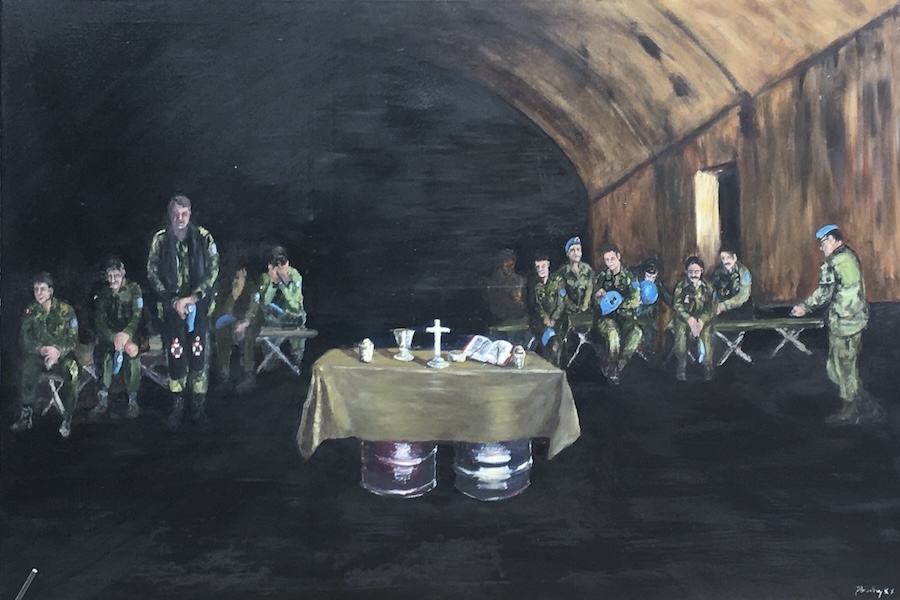



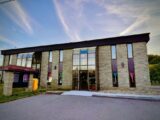

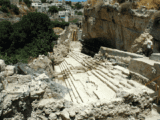


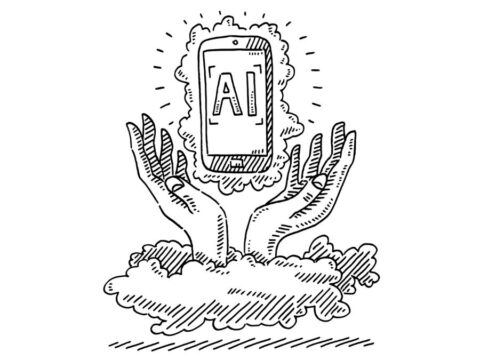


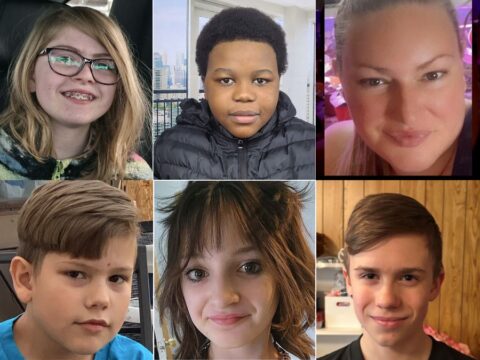

An important story, I learned from a chaplain a few years ago, that soldiers use the ritual time , regardless of faith, to internalize to their own rituals.